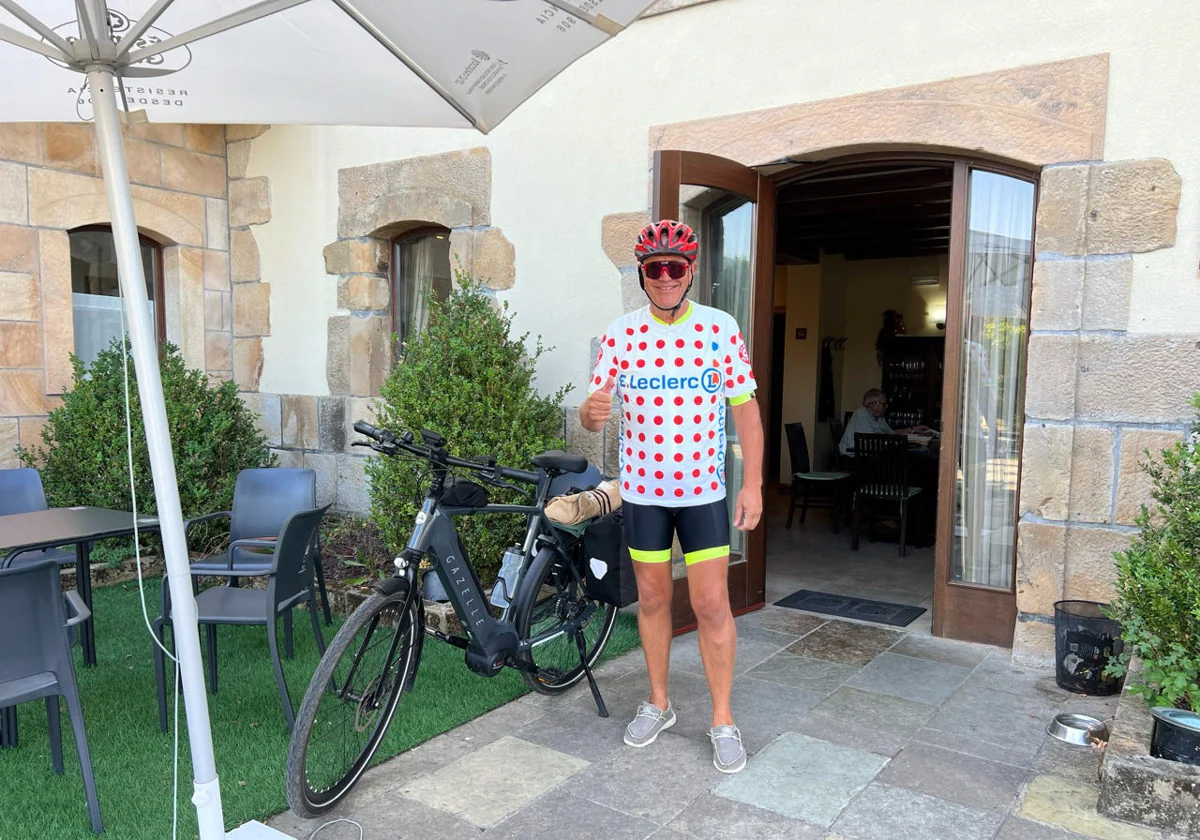Dutchman cycles 2,500 kilometres from Netherlands to Mijas to raise money for donkey shelter
Ron left his hometown of Heemskerk on 10 August and has just arrived on the Costa del Sol, collecting almost twice as much as he hoped to raise during his mammoth ride
Ron is a Dutchman from the town of Heemskerk, a village in the north of the Netherland with a population of around 40,000 whose inhabitants have traditionally been nicknamed 'donkeys'. Ron and his wife regularly spend time on the Costa del Sol, in Mijas, where they have a house and where donkeys are a symbol of the town, and so Ron came up with an plan.
He found out about a donkey shelter in Mijas, Donkey Dreamland, where they take in and look after the animals when they have been abandoned or mistreated. The associations then aims to adopt them out to responsible owners.
Ron then thought about cycling from his home town in the Netherlands to Mijas in a bid to raise funds for Donkey Dreamland. More than 2,500 kilometres, aided by two electric batteries, allowed him to cover about 100 kilometres per day. Ron left Heemskerk on 10 August and recently arrived in Mijas and is now recovering from the long journey.
He initially planned to raise 2,500 euros along the route, but through 72 donations, he managed to reach a total of 4,288 euros. A link to his Gofundme page is available on Donkey Dreamland's social media.
Ron, accompanied by family and friends, is expected to hand over a cheque to the shelter's director, Amaya Isert, this Thursday 12 September. As he pointed out on the donation page, Donkey Dreamland currently houses 20 donkeys, although this number can increase or decrease every day. The goal is to relocate most of the donkeys so more animals can be rescued.
The work carried out at the shelter, both by the owner and a team of volunteers, is extensive and requires a great deal of dedication. When the donkeys arrive they are assessed for health problems, including skin, hair, hooves, weight and psychological well being. The latter is especially important as many donkeys are wary of humans due to neglect or abuse they may have suffered.
The shelter operates seven days a week, 365 days a year, and to raise funds they organise many activities, such as yoga with donkeys and various workshops.

